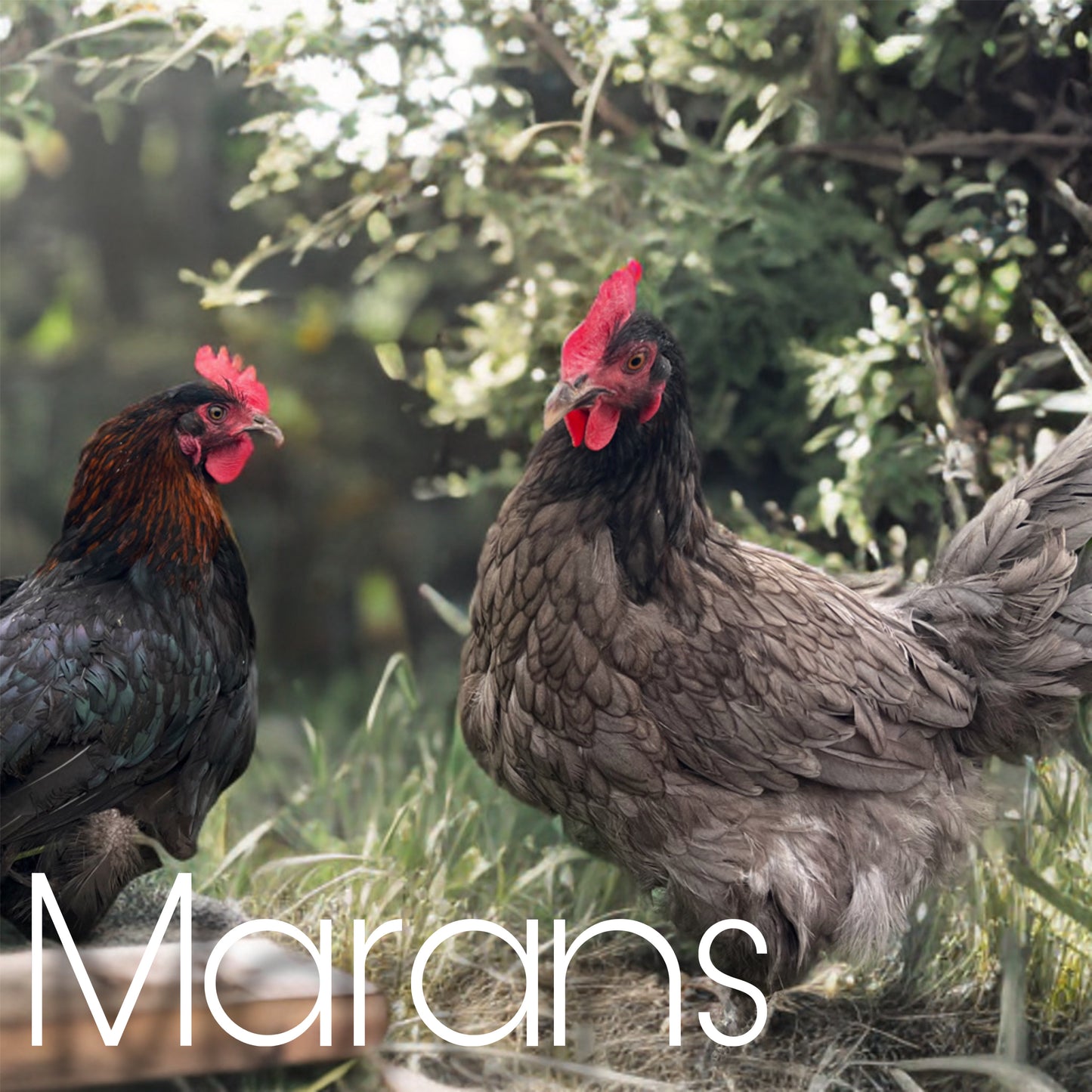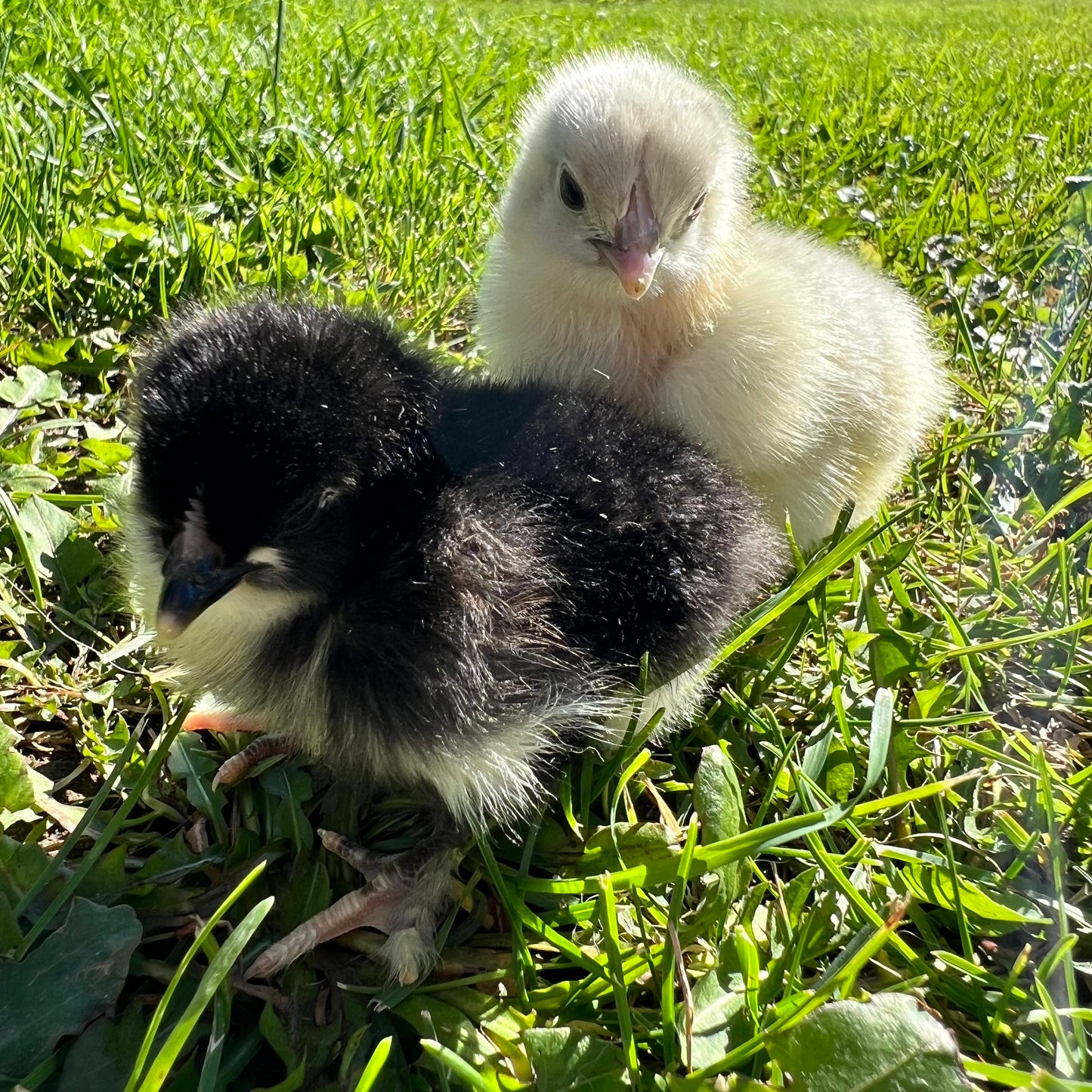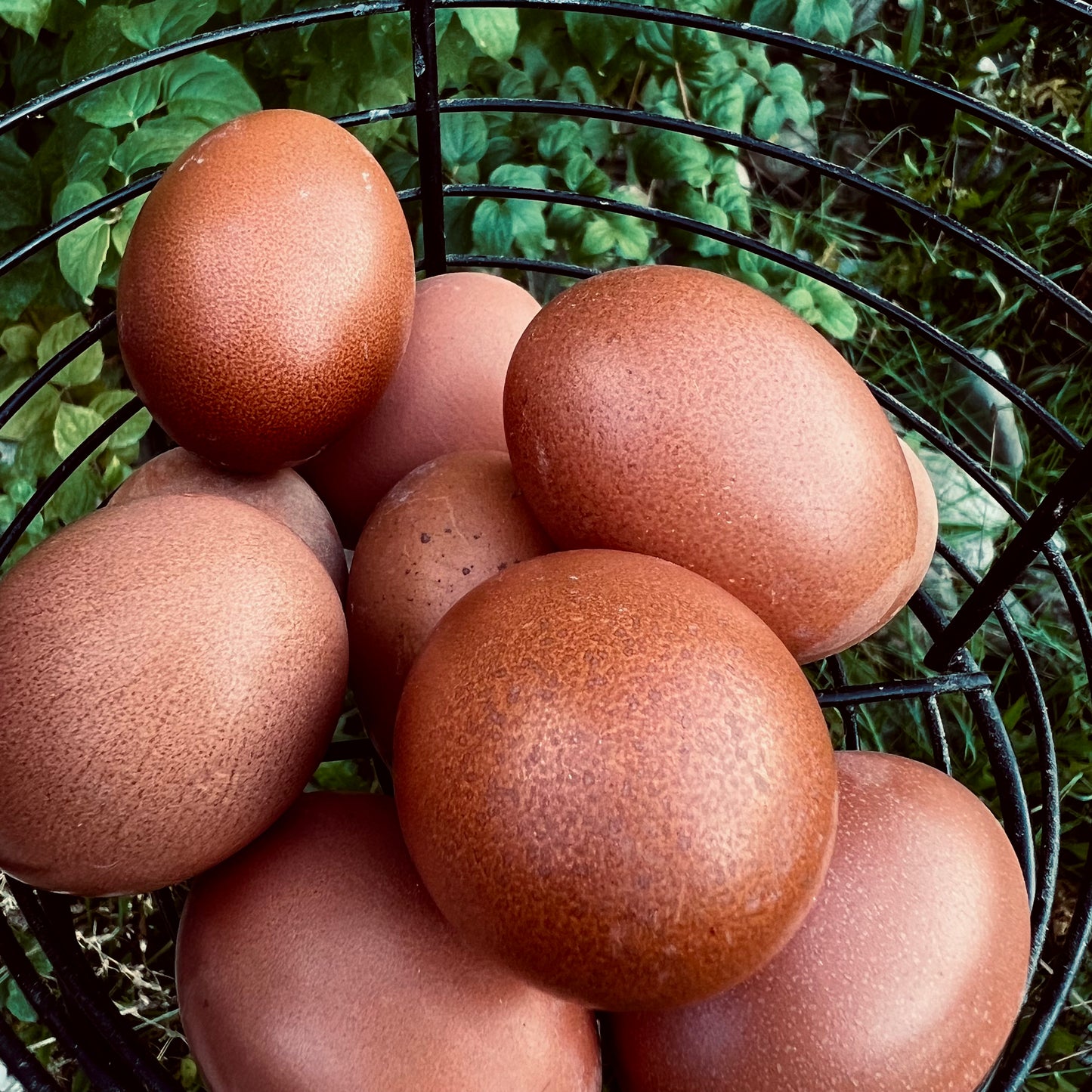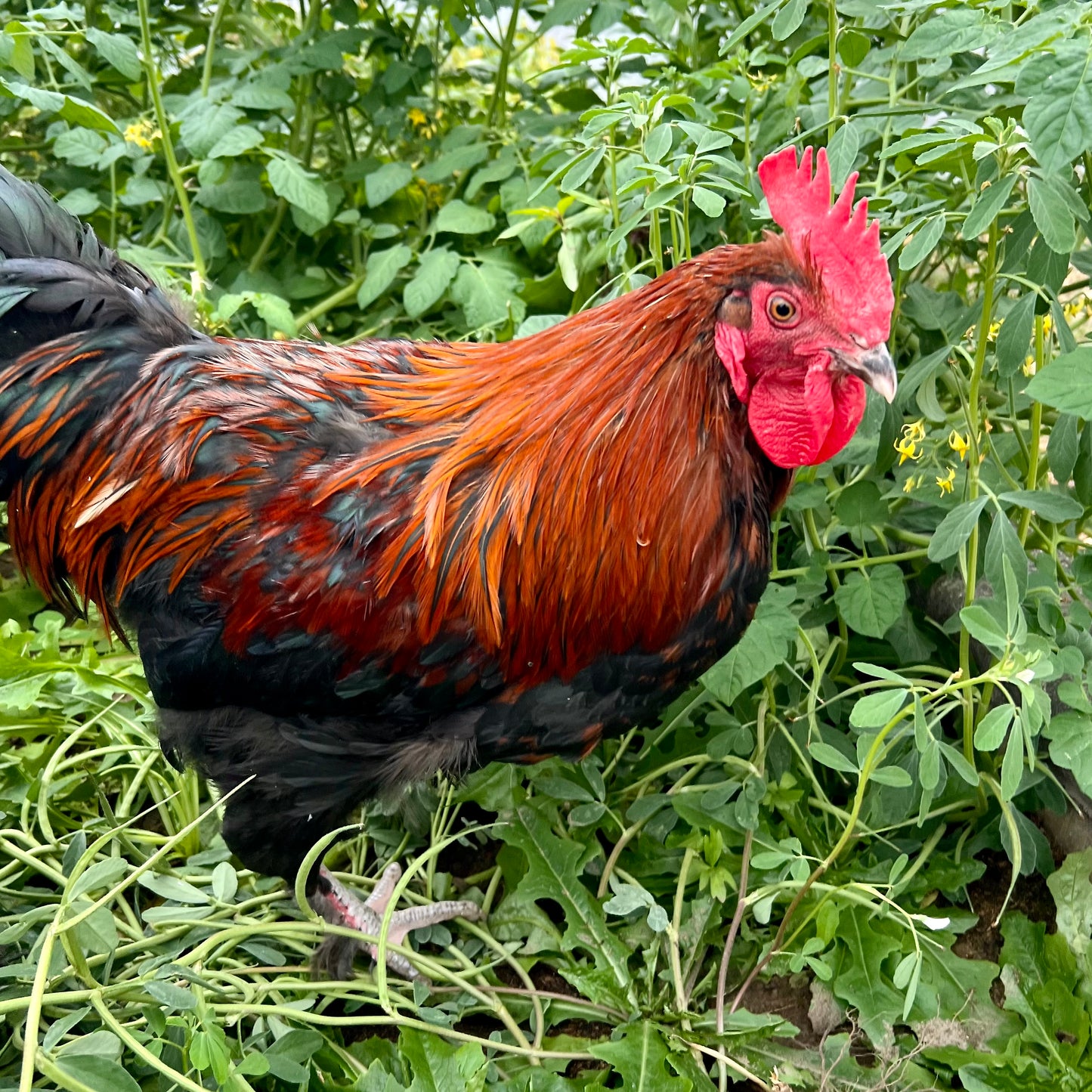Tevah Acres
Black/Blue Marans day old chicks (straightrun)
Black/Blue Marans day old chicks (straightrun)
12 in stock
Couldn't load pickup availability
*Bulk pricing added at checkout for orders over 15 layer breed chicks. This year we are offering Mix and match!
- Pricing:
- 1-14: $15 each
- 15-29: $12 each
- 30-49: $11.25 each
- 50+ : $10.50 each
Please keep in mind that these breeds are straightrun, which means they are not sorted by sex at birth. Unfortunately, we cannot offer refunds or exchanges for any roosters. We have decided to only provide straightrun for most breeds as it is difficult and stressful for the young chicks to undergo vent sexing. We want what is best for our chicks and do not believe it is fair to cause them unnecessary pain right after hatching. If it is important to you to avoid roosters, we suggest looking into our autosexing breeds. Roosters can be ethically raised for meat, pet food, and of course make excellent flock gaurdians. They show great care and affection for their hens and surprisingly, often become some of the best farm friends.
The chocolate brown egg color and calm personality of Marans make them a favorite among backyard chicken keepers. Not only do their dark brown eggs add visual interest to the basket, but they also showcase the impressive breeding efforts behind this remarkable breed.
Marans chickens have a friendly nature and are easy to handle. Their calm and relaxed demeanor makes them ideal for backyard flocks and they are known to get along well with other breeds. These birds are not loud, producing only soft clucks and gentle sounds, making them suitable for urban or suburban settings.
The egg color of Marans chickens is celebrated for its distinctive dark brown shells, often compared to chocolate. However, these eggs can vary from coppery brown to terra cotta, depending on genetics. The color may also change over time, with the darkest egg coming first, followed by a slight lightening with each subsequent egg until the hen's annual molt. Not all Marans lay the same shade of brown, as genetics and individual variation can impact the specific color and intensity. Some hens may even produce speckled eggs in varying shades of brown.
Marans are reliable egg-layers, averaging 3-4 eggs per week or 150-200 eggs annually. Of course, egg production may differ based on variables like diet and living conditions. On average, they begin laying at 5-6 months old and continue consistently.
Share








